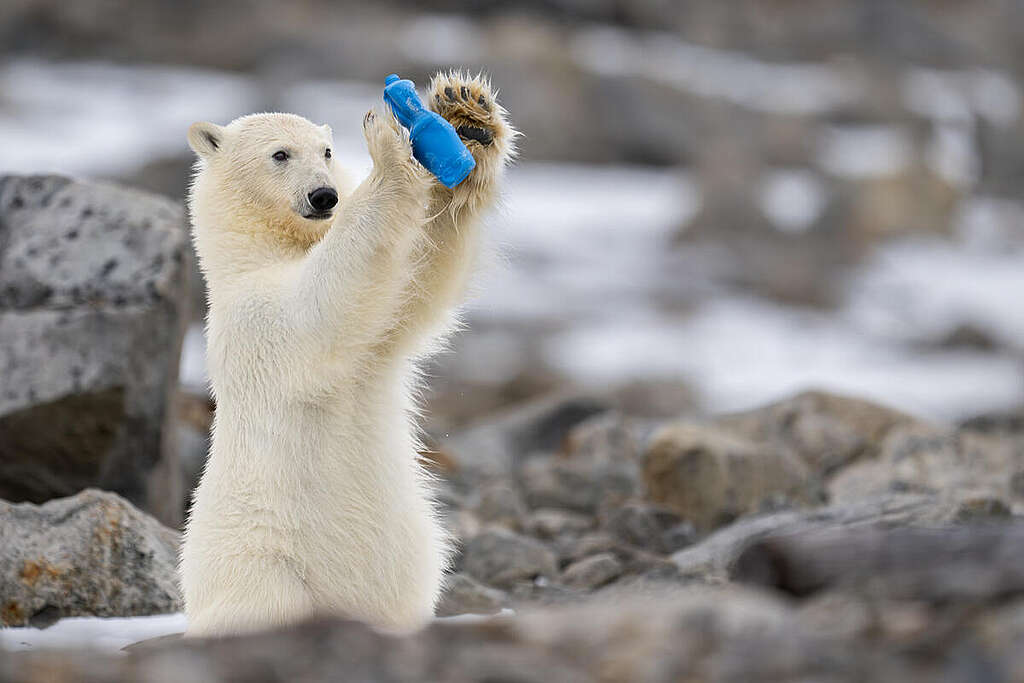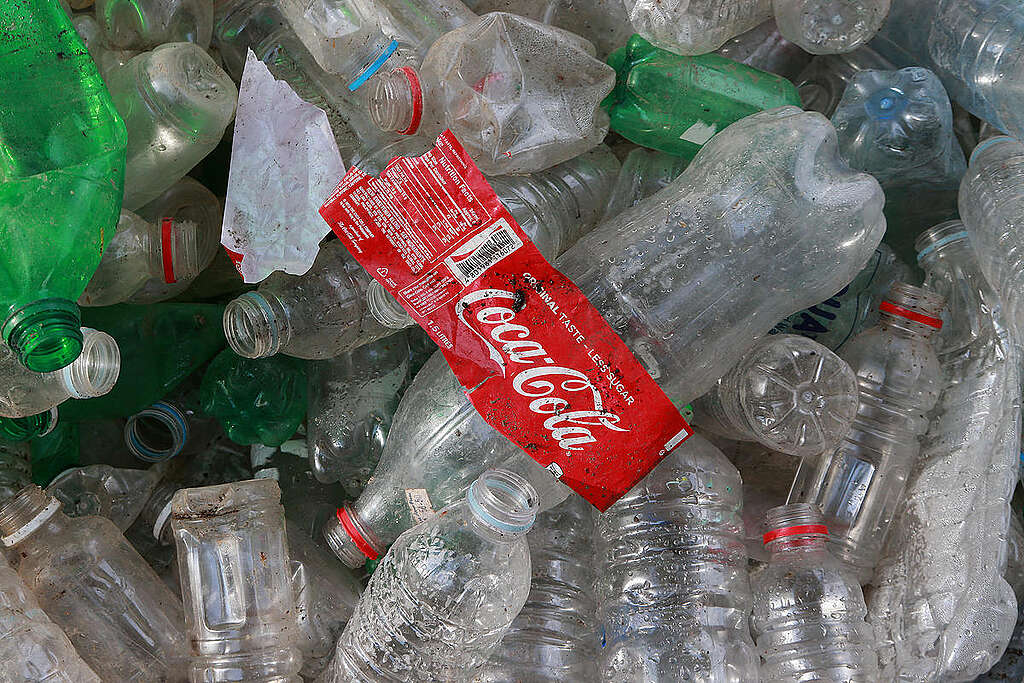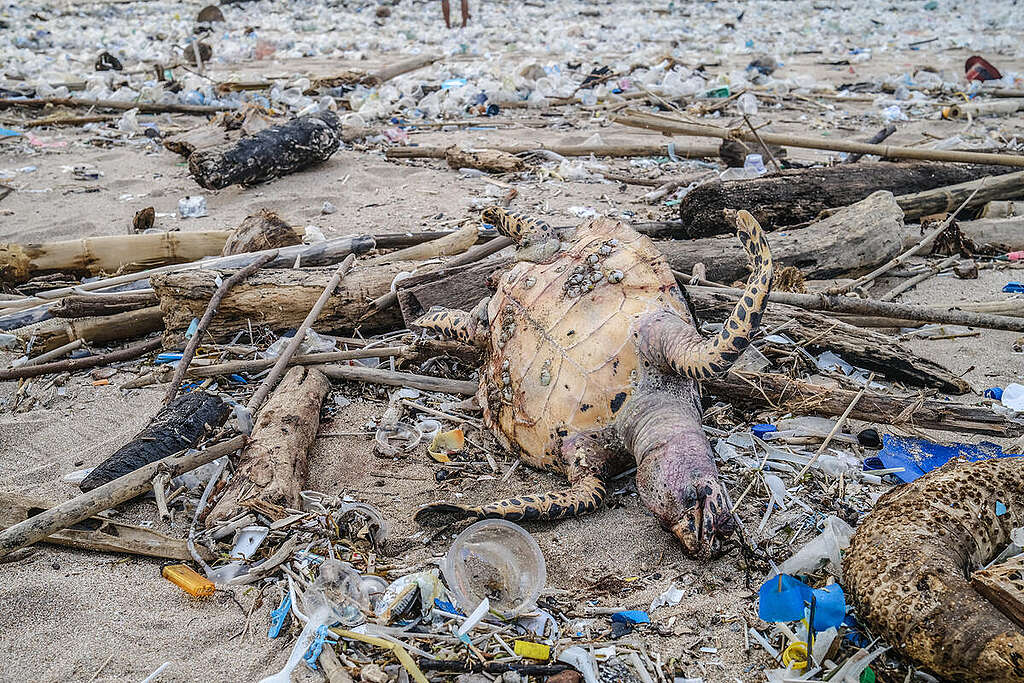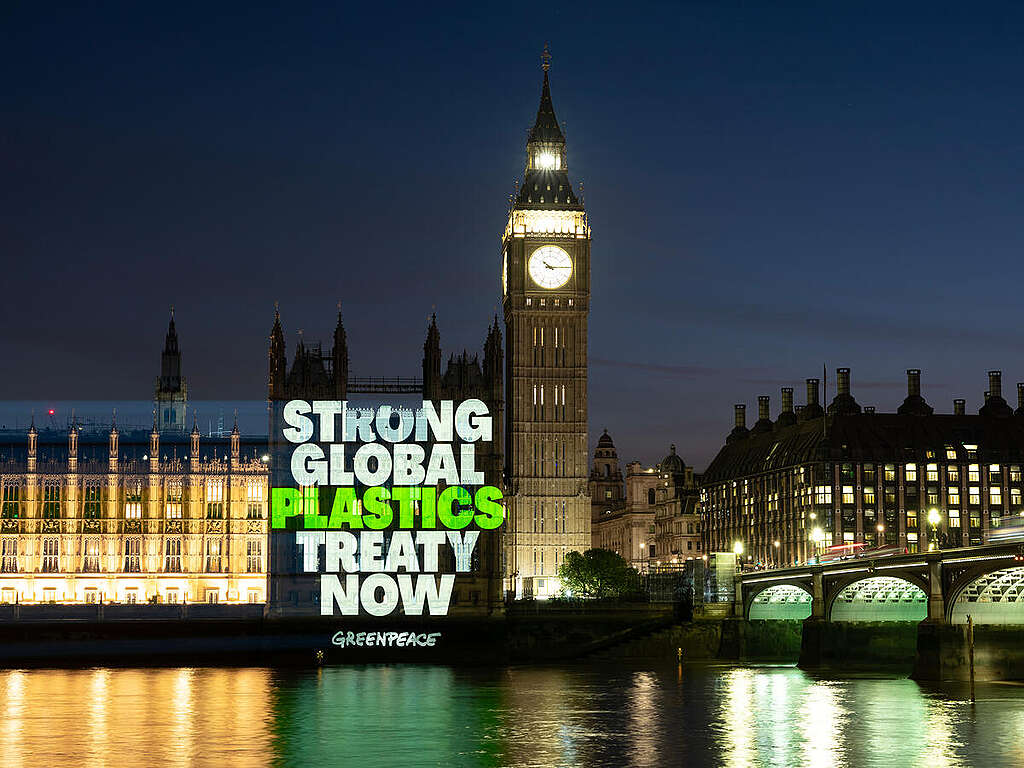Single Use Plastics
We are living in a world that is being destroyed by throwaway plastic. Plastic pollution has flooded our planet, harming people’s health, accelerating social injustice, destroying biodiversity and fueling the climate crisis.


Coca-Cola, Nestlé, PepsiCo, and Unilever: These greedy corporations produce BILLIONS of tonnes of plastic bottles each year.

The problem
Plastic pollution is one of the most pressing environmental issues of our time. Big corporations have convinced us for years that single-use plastic is a necessity in this fast-paced, consumer driven culture that they force on us. They offer us false disposable plastic solutions like recycling as an antidote to the massive amounts of disposable plastic waste when most single-use plastic is simply burned and contributes to greenhouse gas emissions.
What can be done
This isn’t just a matter of individual people stopping using plastic or recycling more. We need to end plastic at the source: the corporations that create plastic waste.
Greenpeace around the globe is calling on the polluting corporations that produce BILLIONS of tonnes of plastic bottles and waste every year to phase out single- use plastic and switch to refill and reuse today.

As of January 2024, progress has been made in various Australian jurisdictions, with NSW, ACT, Victoria, Queensland, South Australia and Western Australia having banned light plastic bags, plastic straws and stirrers, cutlery and polystyrene takeaway containers and cups, amongst others. The Northern Territory and Tasmania lag behind, but generally there is a consistent positive push for continuing this important policy overhaul.
The impact of plastic on our ecosystems
Below are just a few negative impacts of single-use plastic:
- Disposable plastic items don’t biodegrade. They just break down into micro particles that contaminate our environment.
- Microplastics, smaller plastic particles that result from single use plastic breaking down, pollute our water sources and even our food.
- Only 9% of plastic waste gets recycled. The rest is either burned or dumped.
- The single-use plastic trade and resulting plastic pollution disproportionately affects poorer and disadvantaged communities.
Plastic is polluting every corner of the planet. It has found its way to the depths of our oceans, to remote forest paths, to the ice of the Arctic, and onto the island beaches where turtles nest. We don’t know exactly how long oil-based plastic will take to degrade (or even if it ever will), but we do know that once it’s in our soil, rivers, and oceans, it is impossible to clean up.
The plastic we see washing up on shores and floating on the water’s surface is only the tip of the trashberg. Over two-thirds of the plastic in our oceans ends up on the sea floor, creating an ever-growing wasteland beneath the waves.
To make matters worse, bottles, bags, and other plastic junk gradually break into smaller and smaller pieces known as microplastics, which further damage ecosystems even as they’re invisible to the naked eye.Plastic waste is an equally big problem away from the high seas, filling up landfill sites, clogging rivers, and generating pollution through open burning or incineration. Some plastics also contain and leach out hazardous chemicals, posing further risks to wildlife and people
Plastic and climate change
The current plastics economy is a significant contributor to climate change. All plastic produced is derived primarily from oil. Therefore, the consumer goods sector is increasingly aligned with a longtime and troubling ally at the heart of our climate crisis – the fossil fuel industry.
Greenhouse gas emissions from the plastic lifecycle threaten the ability of the global community to keep global temperature rise below 1.5°C. More than 90% of plastic is made from fossil fuels, and a recent report by CIEL estimates that in 2019 alone, the pollution from global plastic production and incineration will equal the emissions of 189 coal-fired power plants. The same report estimates that by 2050, the greenhouse gas emissions from plastic could make up as much as 10-13% of the entire remaining carbon budget. If the overproduction and consumption of plastic continues uninterrupted, it could account for 20% of the total global oil consumption by mid-century.
As big brands continue their addiction to this harmful material, they are fueling climate impacts and jeopardizing communities in the name of profits. All over the world, marginalised communities face disproportionate health impacts from the plastics industry, whether through incinerators, landfills, petrochemical facilities, polluted waterways, or the harmful plastic packaging pushed on communities.
The plastic recycling myth
Globally, only 9% of plastic gets recycled. Even in developed countries, the recycling rate for plastics collected by households is often far less than 50%, with very little of that converted back into packaging. Most “recycled” packaging waste is downcycled into lower value or non recyclable products, meaning that the process is only delaying the plastic’s inevitable journey to the landfill. Bad packaging design, a lack of infrastructure, and the absence of a means to track plastic waste all limit the effectiveness of recycling, and ensure that most plastic packaging will continue to become waste for the foreseeable future.
A problem exported
Even worse, much of the packaging collected for “recycling” in the Global North is exported to the Global South. Before it banned the trade in 2018, China alone imported nearly 8 million tonnes of plastic waste a year. Now the top destination for this waste is Southeast Asia, where the lack of infrastructure and regulations make it difficult to manage the influx of trash from both domestic and foreign sources.
You can help bring an end to plastic pollution
12 million tonnes of plastic waste including straws, drink bottles and food wrappers are poured into our oceans each year! And the corporate giants plan to triple their production of single-use plastics. Your donation today will help power our urgent campaign to protect our planet by pushing for a strong Global Plastics Treaty, and calling on polluting corporations to clean up their act.
Keep informed
Together we are part of a growing, global movement determined to bring about the changes our planet desperately needs. Sign up to receive updates on our campaigns.
